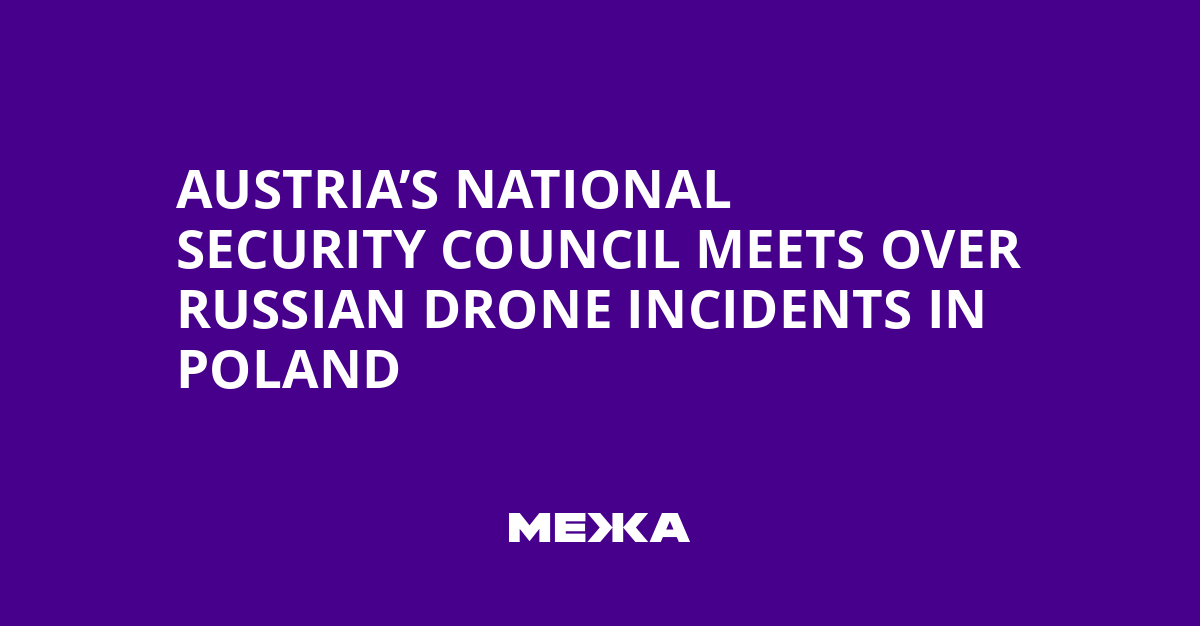The Austrian authorities held a meeting of the National Security Council due to the incident involving Russian drones that fell in neighboring Poland. According to official data, they discussed airspace violations by EU member states and the growing hybrid threats.
The Green Party urged the government to provide the National Security Council with an updated Austrian security strategy. Earlier, opposition forces demanded convening the National Security Council over Russian provocations related to airspace violations.
Defense Minister Klaudia Tanner after the incident urged speeding up the implementation of the missile defense project and plans to intensify talks on procuring long-range systems.
According to official reports, this issue was also discussed during the Council meeting – the federal government’s main advisory body on foreign, security and defense policy.
Chronicle of events and Europe’s reaction
On the night of September 10, Russian drones violated Poland’s airspace. The military carried out an operation to neutralize them, marking the first time targets were shot down over the country’s territory.
Prime Minister Donald Tusk informed NATO Secretary-General Mark Rutte and stated that Poland would not impose additional restrictions.
– Donald Tusk
Tusk added that Poland shot down about four of the nineteen drones that violated the airspace, and debris from the aircraft were found in several settlements. On the same day, a NATO meeting was planned to discuss a response to the incident.
Their actions show signs of criminal offenses under Article 345 of the Criminal Code of Ukraine “Threat or violence against a law enforcement officer” and Article 194 “Deliberate destruction or damage of property”.
– National Police of Ukraine Press Service
On September 12, NATO Secretary General Mark Rutte announced the start of the “Eastern Guard” operation on the alliance’s eastern flank with the aim of eliminating threats related to drone use. The operation involves mobilizing resources from member countries, including Denmark, France, the United Kingdom and Germany, and combines traditional military capabilities with drone-related capabilities.
On September 14, the President of Poland, Karol Nawrocki, signed a resolution allowing NATO member-state troops to stay on the country’s territory within the framework of the “Eastern Guard” operation.
Europe’s Security Prospects and Austria’s Role
Events on the eastern flank are currently underscoring the need for strengthened coordination between the EU and NATO. Austria, as an EU partner country, is considering further steps to align its national security policy with European standards, strengthen defense capabilities, and raise readiness for hybrid threats. The National Security Council is expected to deliver concrete decisions on updating the strategy, defense budget, and strengthening cybersecurity for future challenges.
